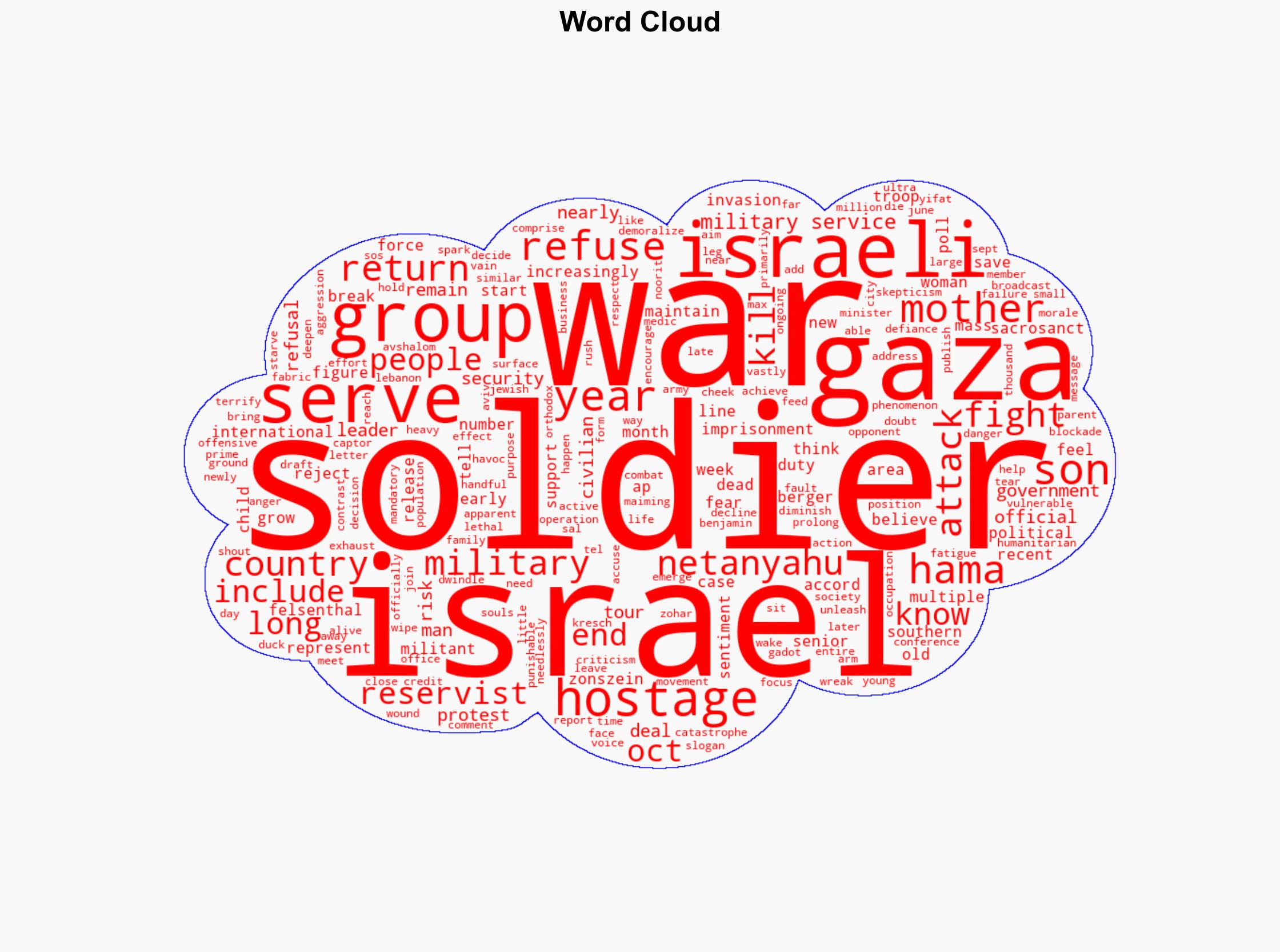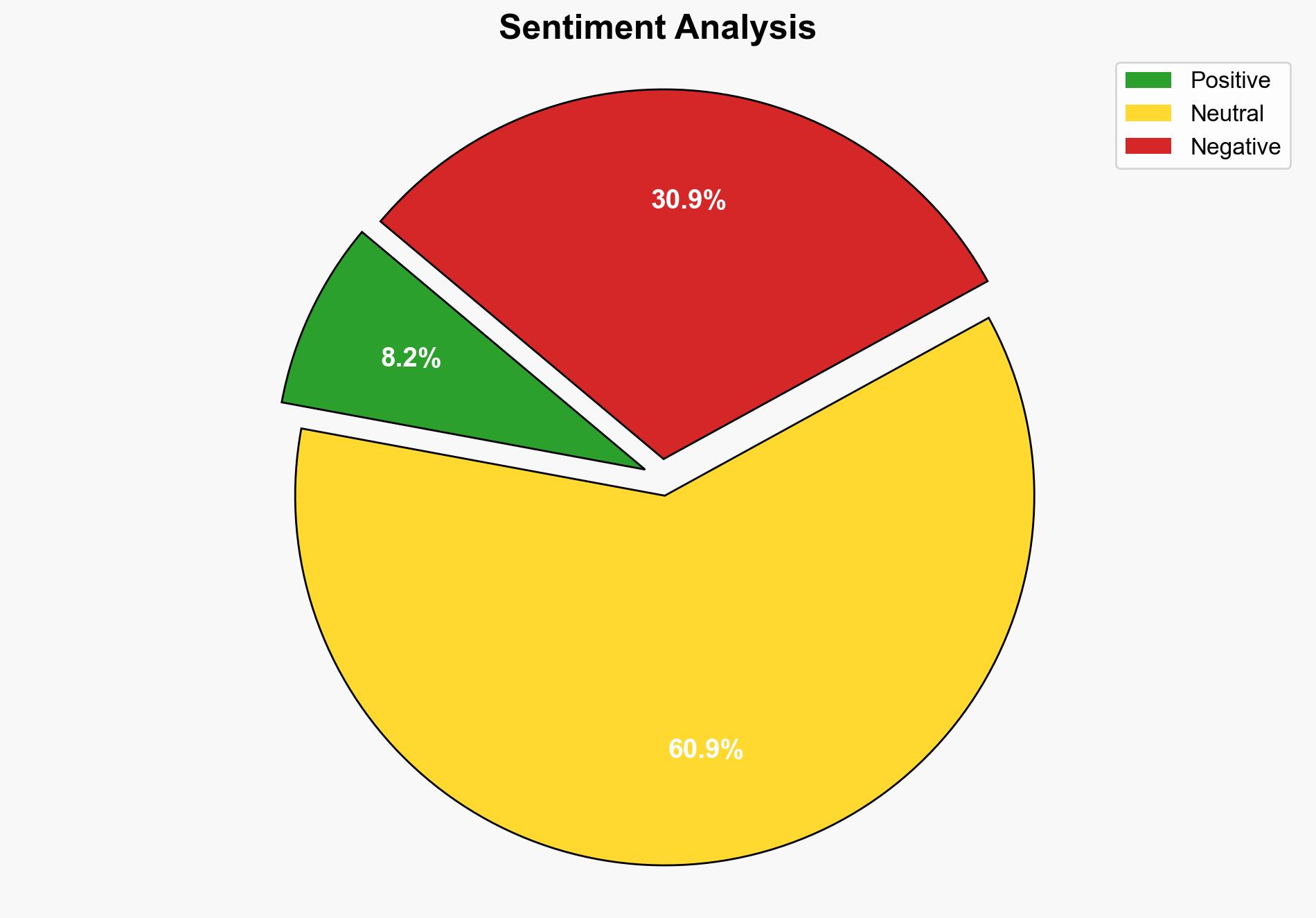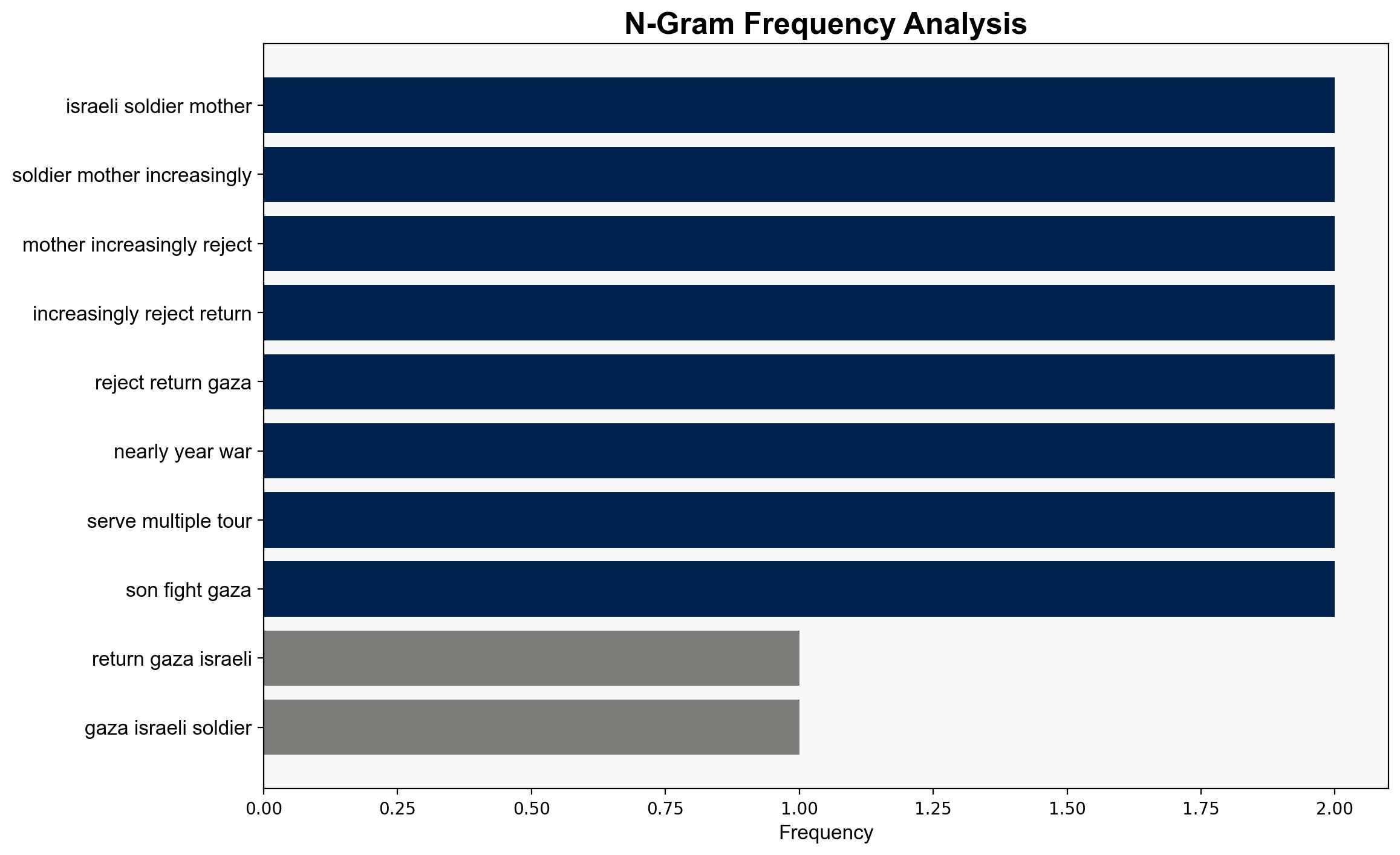Israeli soldiers and their mothers increasingly reject calls to return to Gaza – Associated Press
Published on: 2025-09-12
Intelligence Report: Israeli soldiers and their mothers increasingly reject calls to return to Gaza – Associated Press
1. BLUF (Bottom Line Up Front)
The increasing refusal of Israeli soldiers and their mothers to comply with calls to return to Gaza suggests a potential shift in public sentiment and military morale. The most supported hypothesis is that this trend reflects a growing domestic opposition to the current military strategy, influenced by humanitarian concerns and political dissatisfaction. Confidence Level: Moderate. Recommended action includes monitoring public sentiment and evaluating the impact on military readiness and political stability.
2. Competing Hypotheses
1. **Hypothesis A**: The refusal of soldiers and their mothers is primarily driven by humanitarian concerns and the perceived futility of the conflict, leading to a grassroots movement against the current military strategy.
2. **Hypothesis B**: The refusals are a politically motivated effort to undermine the current administration, leveraging public dissatisfaction to force a change in leadership or policy.
Using ACH 2.0, Hypothesis A is better supported by the evidence of public protests, the formation of organized groups, and statements emphasizing humanitarian concerns. Hypothesis B lacks direct evidence of political orchestration, though political dissatisfaction is noted.
3. Key Assumptions and Red Flags
– **Assumptions**: Hypothesis A assumes genuine humanitarian concern as the primary motivator, while Hypothesis B assumes political manipulation.
– **Red Flags**: The potential for political actors to exploit the situation remains a concern. The limited scale of refusals compared to the overall reservist response may indicate isolated incidents rather than a widespread movement.
– **Blind Spots**: The internal dynamics within the military and government responses to these refusals are not fully explored.
4. Implications and Strategic Risks
– **Military Readiness**: Continued refusals could impact military operations and readiness, potentially emboldening adversaries.
– **Political Stability**: Growing public dissent could lead to increased political instability, affecting governance and policy decisions.
– **International Perception**: Heightened international scrutiny and criticism could affect diplomatic relations and economic conditions.
5. Recommendations and Outlook
- Monitor public sentiment and military morale to anticipate further refusals and potential impacts on operations.
- Engage in dialogue with dissenting groups to address concerns and mitigate risks of escalation.
- Scenario Projections:
- Best Case: Constructive dialogue leads to policy adjustments, reducing dissent and improving morale.
- Worst Case: Escalating refusals lead to significant operational challenges and political instability.
- Most Likely: Continued refusals with moderate impact, prompting strategic reassessment.
6. Key Individuals and Entities
– Noorit Felsenthal Berger: Vocal opponent of the current military strategy.
– Avshalom Zohar: Soldier expressing fatigue and demoralization.
– Max Kresch: Member of the group opposing the military strategy.
– Yifat Gadot: Mother of a soldier expressing concerns over military operations.
7. Thematic Tags
national security threats, military morale, public dissent, regional focus





